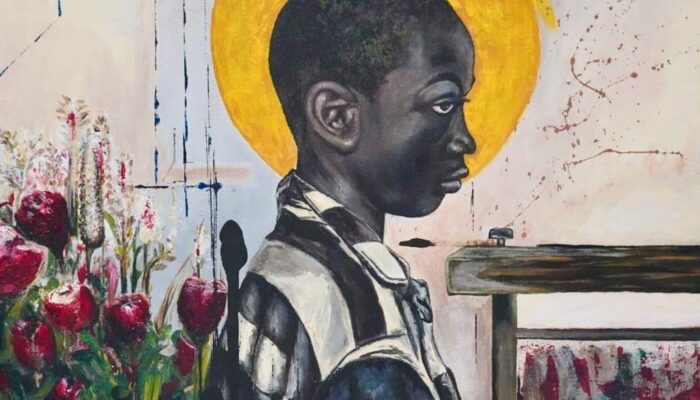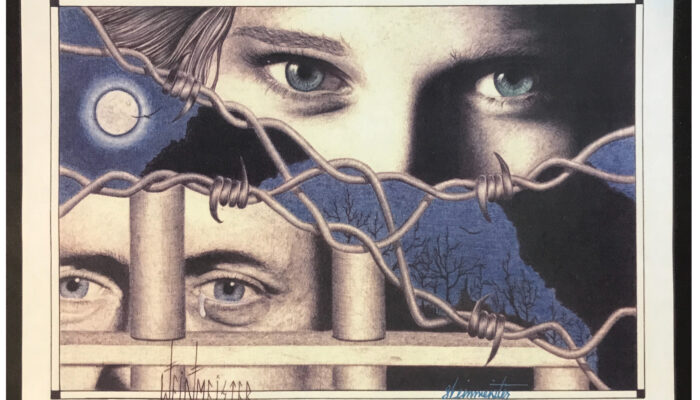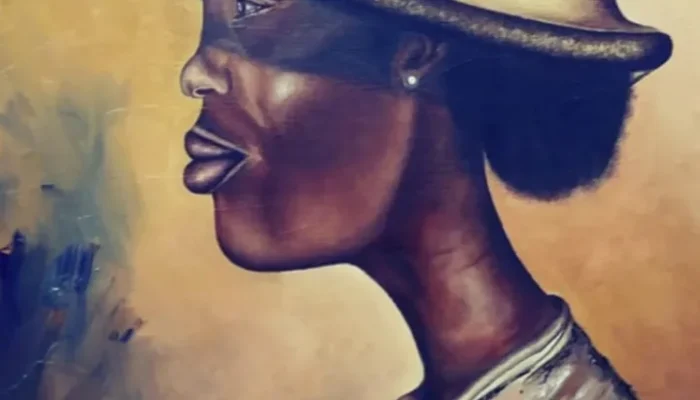Morgan Parker is a prolific NYC-based poet, activist, and museum education director. Her debut collection Other People’s Comfort Keeps Me Up At Night is forthcoming from Switchback Books in 2015, and her poems “Negro Sunshine” and “Their Grandmothers Never Did the Laundry” appear in the latest issue of Apogee Journal. Morgan chatted with fellow Bed-Stuy, Brooklyn resident and Apogee Editor-at-large Melody Nixon about race, gender and politics in the poetry world today.
Melody Nixon [MN]: You wrote a Facebook post about working on this interview and all the truths you’re laying down, and you said, “No one’s ready. Not even me.” What did you mean?
Morgan Parker [MP]: I think we’re all very accustomed to speaking and listening to bullshit. It’s the American way. It’s easy to avoid being candid about certain topics in mixed company. Your questions were so upfront and big, which is what I appreciate about Apogee in general, but I know a lot of people don’t want to hear it. Some people would rather hear me talk about Beyoncé or The Real World or brunch than the direct realities of my struggle as a Black woman. They want a “break” from hearing about race politics from Black poets. I’m not really in the business of giving breaks. I never get breaks. I’m never not a Black woman. That’s never not complicated. Beautiful and praiseworthy, but complicated.
MN: You have a line in a poem published in Pank Magazine: “What I mean to say is this: / honesty is uncomfortable and funny.” How do we encourage people to face up to the discomfort of talking about race and gender?
MP: Discussing privilege is difficult, either because some folks would rather be defensive than honest, or the space isn’t often provided/nurtured in a responsible way, or, conversely, there’s too much talking and not enough listening. It’s just a matter of acknowledging one’s place in society, and not being self-deceptive about our own inclinations and privileges. Not everyone wants to do that.
MN: How do you address race and gender in your writing? Do you ever set out to write “overtly” political poetry?
MP: This is a tough question, mostly because I’m pretty continually confused by what is or isn’t “political poetry.” Plus, I’m never certain what I’m up to when I set out to write a poem. I am absolutely inspired by politics, and of course pop culture and current trends.
MN: You often write about Drake, King Bey, Hip Hop, and Mad Men. I especially remember lines you read at an AWP ’14 closing party:
“That summer you only listened to
Versions of The Girl From Ipanema
Drank Vinho Verde and chopped cherry tomatoes like
You were an extra in a Mad Men vacation scene”
from your poem “Untitled While Listening to Drake.” Why do you write about popular culture?
MP: Pop culture is a mirror. I write about what surrounds me. But my work is also very personal and interior. My mission as a writer is to convey as honestly as possible what it feels like to inhabit my particular skin right here, right now. I use my opinions and commentary about politics only in as much as it serves this mission of creating a genuine portrait of my existence. And as a Black woman, as Morgan Parker, this existence is necessarily political.
MN: Your poem “Their Grandmothers Never Did The Laundry” opens Apogee Issue Three. In my reading this piece deals with the obfuscating of history, and the role of dominant white culture in the “blanking out” of black experience. Do you agree with this read?
MP: Absolutely. The poem is an ode to my grandmother, but even more than that, it is an ode and an acknowledgment of everyone who has come before me and struggled quietly. I’m in awe of the strength of my ancestors, and I wanted this poem to focus on the dichotomy between the weight of their lives and the historical “easiness” of dominant white culture. And it’s an exploration of where I fit in or want to fit in that dichotomy.
MN: In the poem you play with position, and repositioning, both through pronouns (“their,” “they”) and imagery: “there is a picture in a black/ Pier One frame” but, “there’s no black in the pictures.” Later: “… Out of frame does anyone/ notice a shackle?” How conscious was this move to play with position?
MP: The framing/repositioning through language and imagery was a way for me to think about difference. Because the poem is an ode of sorts, as well as a response, it focuses on what is and isn’t remembered, displayed, or seen. It interrogates the messiness of American history. So for example, I love Mad Men, but watching it I’m always made aware of who and what I would be allowed to be in that era. Which brought me to my grandmother, who cooked and cleaned for a white family and was also the most badass woman I’ve ever known. And I was thinking of this while washing my hands in a cheesy restaurant bathroom one weekend, pausing to look at a picture of “Old New York” in the early 1900s. It was just so white and I was overtaken with the lack of myself and my history. The erasure is almost violent. One tragedy of growing up Black in America is being told that your history and its truth is unimportant.
MN: The poem is threaded throughout — is underlain — with the color black, with blackness: “her black lips,” “did the sky blacken,” “black and tough as shit.” The poem is so visual, the blackness described has such texture and vivacity. Did you intend to give the poem a “black background,” to emphasize the way “there’s no black in the pictures?”
MP: The first draft of this poem was a ghazal, with the repeated word, of course, being “black.” In revision I took it out of form but the repetition and play and relentlessness of the word is still important to the poem. Because it was a response to– honestly, the desire for black writers to be quiet about blackness– I wanted to be over the top. To flood the poem with the word. For the word to transform and bloom with each repetition.
MN: Can you talk about whether and how your work as a black writer has been/is marginalized by white literary society? Are there particular elements of your writing that you find are marginalized, as opposed to others?
MP: Yep. One example is how the speaker of many of my poems is often described as “sassy” or “fierce.” The thing about that comment is that it isn’t incorrect. But it’s more complicated and layered than that. And I think as is often the case with the white perspective of Black culture, there is an inability– no, an unwillingness– to see the nuances. OK, so maybe the speaker of the poem is sassy, but I’m very sensitive to long-exhausted tropes of Black women, and I am fluent in “coded language.”
MN: In MFA and other mainstream writing workshop environments there’s sometimes an expectation from majority white writers in the group that any minority writers should write from a particular racialized, gendered, sexualized, or culturally ‘other’ perspective. Did you ever encounter this sense of onus or obligation from white or male writers?
MP: Ha! White folks are just so curious sometimes! I’ve experienced this in a very quiet way in comparison to the experiences of other writers of color. I’ve been lucky to have some thoughtful white and male peers and mentors in workshops. Occasionally, though, there is definitely an expectation to “use” race and gender in this very stale, easily-digestible, preachy way. In workshops, I might be steered to “elaborate” on certain things, or “unpack” them. (That’s really just a request for me to teach them Intro to African-American Studies.) And you’re right: it’s a way of “othering” and exercising supremacy by steering the conversation on their terms. Race and gender are always concerns of mine, and they are underneath everything I write, but the way they enter my work can be surprising, quiet, and sometimes unnoticeable. I like to remind myself that what I write about is not up to anyone but me. I only have an obligation to myself as an artist.
MN: You’re really active in the poetry community in NYC. How do you find it in terms of segregation?
MP: The poetry world isn’t outside of the real world. There’s often natural segregation. Not necessarily forced, but communities springing up within communities, which I think is great. Shit is far from “post-racial” (there’s that strange, fictional word), and there is often a real need for culturally specific groups and institutions, for safe spaces. My first year at Cave Canem was the first time I ever gave a reading to an all-Black room. That’s ridiculous.
MN: You’ve read work in Seattle, Baltimore, and other cities around the U.S., how do different poetry communities around the country compare to the NYC literary scene?
MP: I mean, NYC is it. It’s just so vast. On any given night, I could choose between at least three good poetry readings. At the very, very least. And not all by hip, young white poets. And sometimes with women only! Even women of color only! I often take the options for granted until I’m in other cities.
MN: Do you think there’s such a thing as a “white notion of blackness” in America? If so, how would you describe it?
MP: Yes, there is. As far as I can tell, historically and systematically, it’s oppressive, limiting, terrifying, and not-very-well-researched.
MN: What is your relationship to it?
MP: Unfortunately, I have a very close, personal relationship to the white American notion of Blackness. It’s the story told to me about myself, and repeated and reinforced through political systems, social mores, and the media. White supremacy is a very real and dangerous thing: it gets into the psyche. It swallows and convinces. That’s why it’s so important for me to self-explore and self-define in my writing. I don’t want my story to be written by anyone else.
MN: “Negro Sunshine” has a line about “a gust of wind” ironically remembering “the city before it got post-Black.” In your ideal world, what sort of discussions would we be having about race in America today?
MP: Honestly, I would be happy to start anywhere.
Morgan Parker’s first collection of poems, Other People’s Comfort Keeps Me Up At Night, was selected by Eileen Myles for The 2013 Gatewood Prize and is forthcoming from Switchback Books in 2015. Recent poems are forthcoming from Tin House, jubilat, and Forklift, Ohio. A graduate of NYU’s Creative Writing MFA program and a Cave Canem fellow, Morgan lives in Brooklyn with her dog Braeburn. She works as a poetry editor for Coconut Magazine and Education Director at the Museum of Contemporary African Diasporan Arts (MoCADA). You can find her at www.morgan-parker.com.




